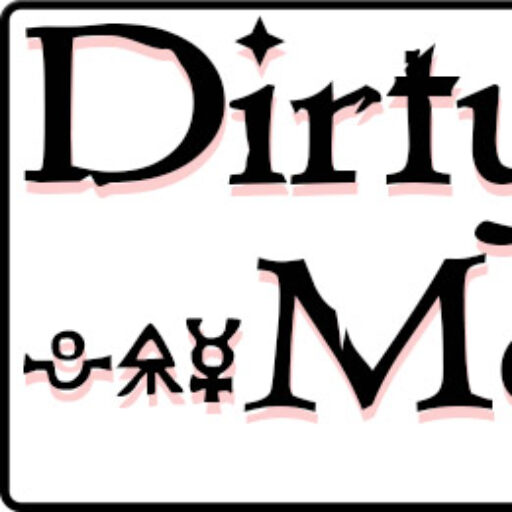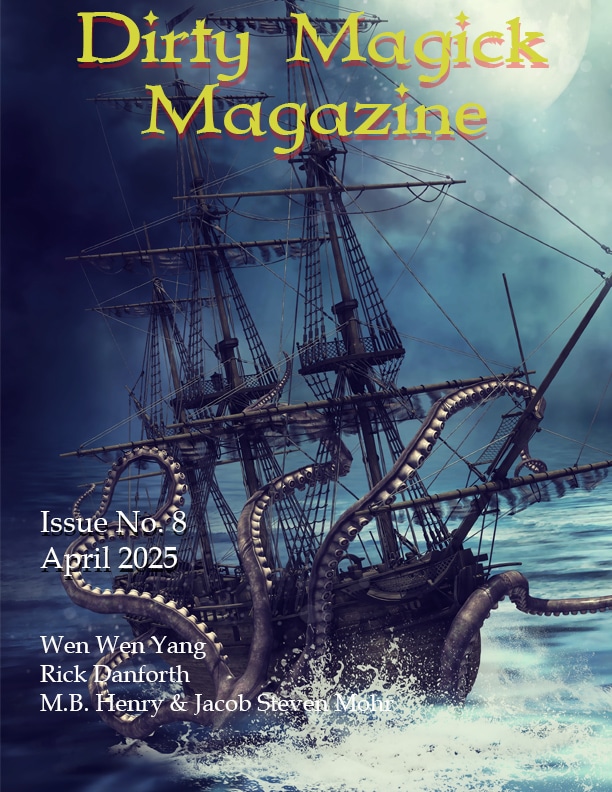Dreams come in many sizes.
I have had large ones that did not come to pass. I moved to Los Angeles in 1997 to find my fortune as a screenwriter. Hollywood was fun and I had many great adventures, but in the end, it didn’t work out.
I went to grad school to learn how to write a novel. My dream was smaller, but I hoped my ability with words would get me somewhere. While I published four books, it didn’t come with the bigger dreams fulfilled: recognition and a creative writing professorship.
However, smaller dreams are easier. I wrote and directed two feature films and many shorts with the help of many great collaborators. I have published many stories, enough to make a nice pile on the bookshelf. And I have a great job teaching first-year writing at two universities I love. But there’s always that nagging feeling.
In 2012 when Dirty Magick was conceived, I always had it in the back of my mind to take it beyond anthologies. These were the early days of self-publishing when niches within the genres were first peeking out. While mashups have always been around, we were now putting a name on it and what was once a giant river spilled out into several small branches.
But the roots go even deeper than that, to the time when I was first learning to write. In the late 1980s, I subscribed to many magazines: Spy, for the humor and investigative journalism; Omni, for science news and speculation; and Wired, for the cutting-edge technology. But the ones I looked forward to the most were the fiction magazines.
I read Amazing Stories and Alfred Hitchcock’s Mystery Magazine. They were good for what was going on in the mainstream. But the one that I liked the most was Marion Zimmer Bradley’s Fantasy magazine, low tech in terms of design but high quality in terms of stories.
I know Bradley’s reputation has been ruined by her sketchy private life (you may google the details for yourself), but I remember the publication quite fondly. Her guidelines, which came through the mail on a Xeroxed page originally created on an actual typewriter, were quite iconoclastic. Her word count max was 6,000—the guidelines said, “If you’re going over that, just write a novel”—and she was particular in her taste. For example, the burgeoning urban fantasy movement made her upset. She was motivated by creating a sense of wonder and anything too close to our world destroyed that feeling for her.
But each story within felt like part of a singular vision. She wanted the world full of interesting stories and these were her favorites. When one of my friends was accepted in her yearly anthology Sword and Sorceress, it was a reason for great celebration.
So when I looked at the new publishing world, I saw a place for my own vision. I see urban fantasy dominating the novel market but being slim in short stories. I see grand epics of thousands of pages, but I desire the street-level shenanigans I loved in Fritz Leiber and Robert E. Howard. And as a writer of vampire fiction, I would be a huge hypocrite if I didn’t make a place for alternative gothic horrors.
To sum up my point, each fiction magazine and anthology out there is similar in one way: vision. We as editors and publishers see a need and intend to fill it. I see an audience for stories that fit my taste. I hope you will follow me along and we can create a great space for those ideas.
-C.D. Brown









